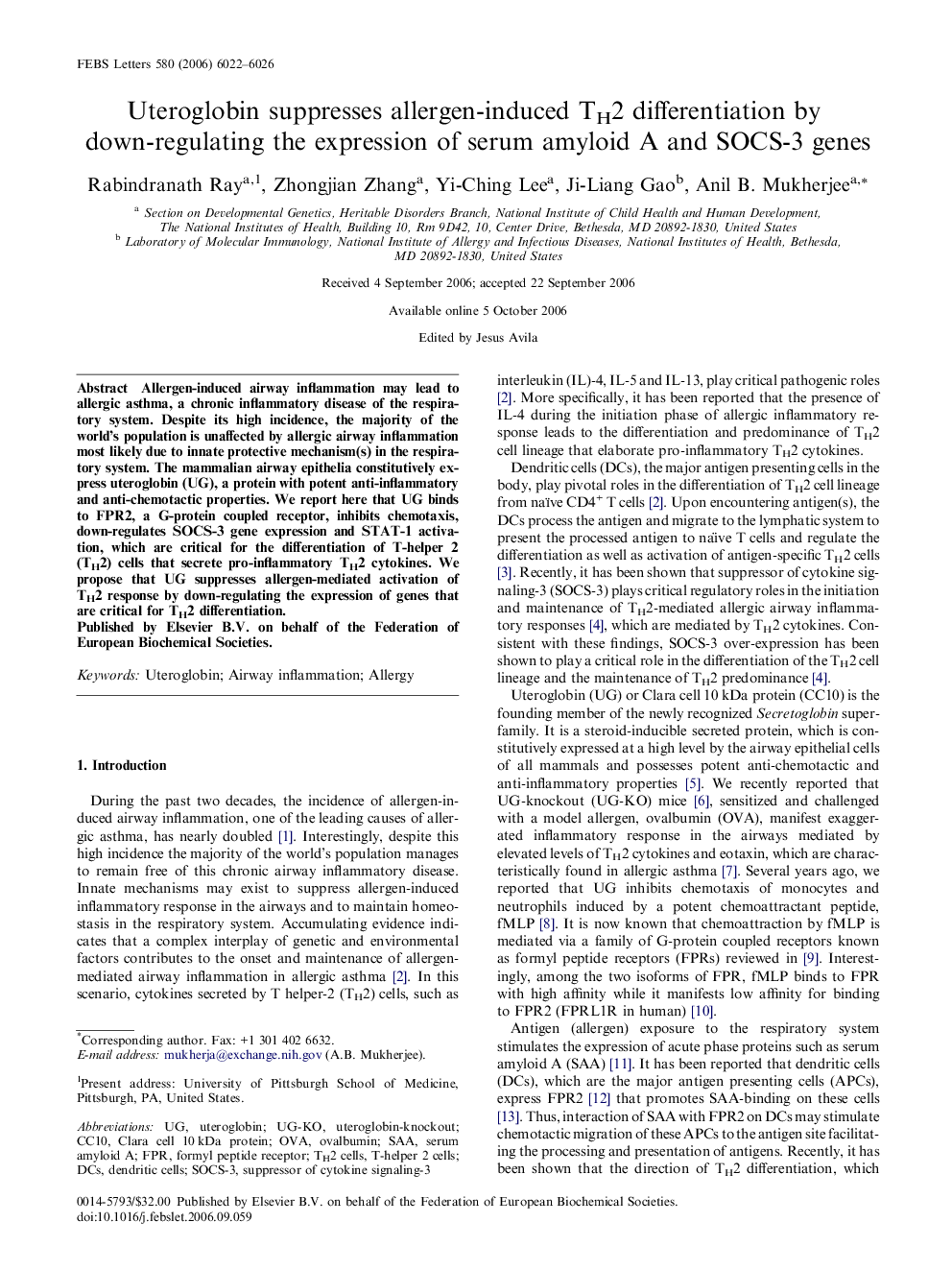| Article ID | Journal | Published Year | Pages | File Type |
|---|---|---|---|---|
| 2050320 | FEBS Letters | 2006 | 5 Pages |
Allergen-induced airway inflammation may lead to allergic asthma, a chronic inflammatory disease of the respiratory system. Despite its high incidence, the majority of the world’s population is unaffected by allergic airway inflammation most likely due to innate protective mechanism(s) in the respiratory system. The mammalian airway epithelia constitutively express uteroglobin (UG), a protein with potent anti-inflammatory and anti-chemotactic properties. We report here that UG binds to FPR2, a G-protein coupled receptor, inhibits chemotaxis, down-regulates SOCS-3 gene expression and STAT-1 activation, which are critical for the differentiation of T-helper 2 (TH2) cells that secrete pro-inflammatory TH2 cytokines. We propose that UG suppresses allergen-mediated activation of TH2 response by down-regulating the expression of genes that are critical for TH2 differentiation.
